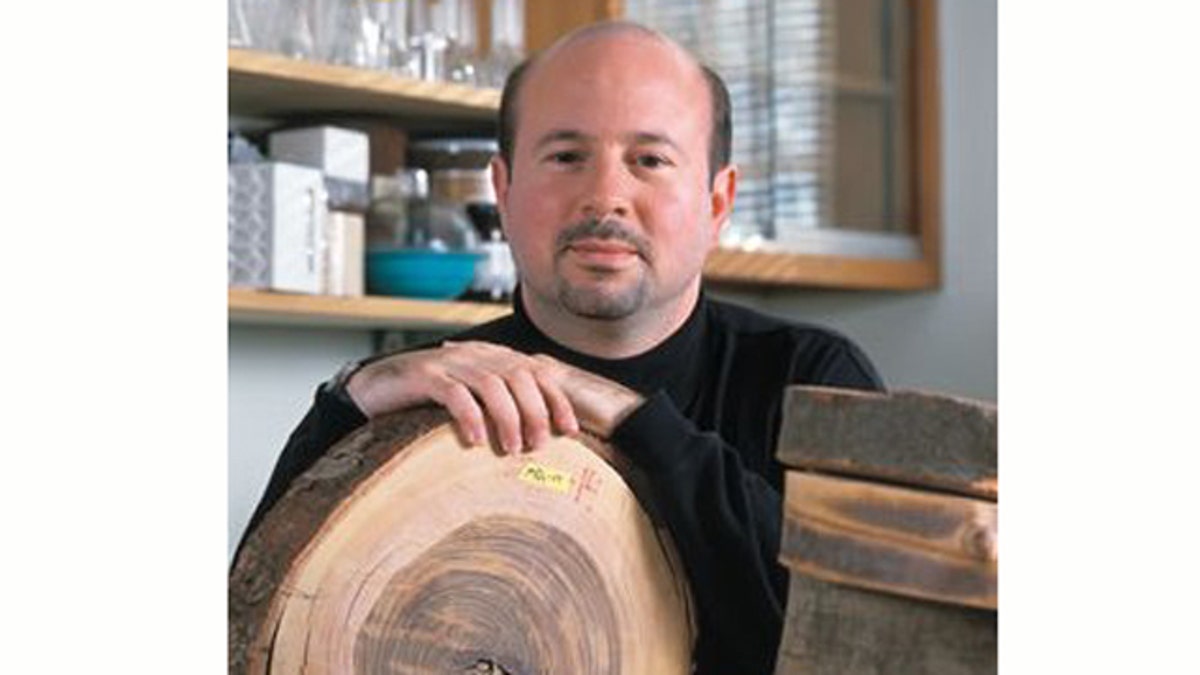
(Penn State University)
How thoroughly did Penn State University investigate a top climate scientist who brought hundreds of thousands of dollars in grants to the school? A growing number of critics say they hardly looked at all.
Penn State ended a two-month probe into the work of Michael Mann, a top climate scientist whose "hockey stick" graph of climbing world temperature helped galvanize support for the climate change movement, on Wednesday.
The probe stemmed from the release of thousands of hacked e-mails from a server at the Climate Research Unit at the University of East Anglia in England that showed the internal debate and, some say, the manipulation of data, to support the scientific underpinnings of the case for global, man-made warming of the planet. Mann's e-mails were among those released and critics charged that he used "tricks" to make his data match studies that confirmed warming trends.
A three-person board of inquiry cleared Mann of three of four charges brought by the university that he falsified or tried to destroy data, and recommended further study on the fourth charge that his methods "deviated from accepted practices" of the scientific community.
They wrote in their report that "that there exists no credible evidence that Dr. Mann had ever engaged in, or participated in, directly or indirectly, any actions with intent to delete, conceal or otherwise destroy e-mails, information and/or data."
Click here to read the full report.
But the findings and, more importantly, the focus have set off a wave of criticism accusing the university panel of failing to interview key people, neglecting to conduct more than a cursory review of allegations and structuring the inquiry so that the outcome -- exoneration -- was a foregone conclusion.
On Friday, Rep. Darrell Issa, the ranking Republican on the House Investigations Committee, charged that the Penn State's failure to settle all the charges and called into question professor Mann's work. He is demanding that all grants to the noted scientist be frozen.
Mann, according to published reports, has gotten a grant almost $550,000 in stimulus money to study climate change and is part of a nearly $2 million grant to Penn State to study the impact of climate change on various diseases.
"Until the investigation is completed," Issa said, "the National Science Foundation should immediately freeze all grants and funding, including the $541,184 stimulus grant, to Professor Mann."
Criticism directed at the conduct of the investigation is being spearheaded by Steven Milloy, a former Fox News contributor and publisher of Junk Science, a Web site dedicated to debunking global warming research.
"It was set up to be a total whitewash and the panel made no effort to investigate," Milloy said. "They didn't even interview the recipients of the e-mails. It is ridiculous."
He charges that the panel did little more than look at the e-mails Mann sent and that, despite claims that "hundreds of hours" of time had been put into the investigation, only two people were actually interviewed. "None of them had any direct knowledge of the e-mails," he said.
"The only interviews cited in the report other than Mann's are with Jerry North and Donald Kennedy," he said. "Both are Mann's supporters and none have anything to do with the charges. Kennedy was the editor of Science magazine, and North helped Mann defend the 'hockey stick' graph. Yet Phil Jones, who got the e-mails, wasn't contacted."
Steve McIntyre of the Web site Climate Audit also charged that the panel looked at papers that were already publicly available. "They did not examine any of Mann's correspondence that was not already in the public record," he said. In effect, he argued, the panel didn't use any of its investigatory powers to plumb deeper.
Pennsylvania's Commonwealth Foundation, a conservative research and educational institute, proposed that the state legislature conduct an independent investigation of the charges and Mann's research.
A spokesman for the foundation said it was a "conflict of interest" for Penn State to investigate itself. Republican State Rep. RoseMarie Swanger also called for a separate investigation to be conducted by the state.
Graduate School Dean Henry C. Foley, who headed the investigation, referred all calls on the subject to media representatives for the school, who failed to return phone calls.




















